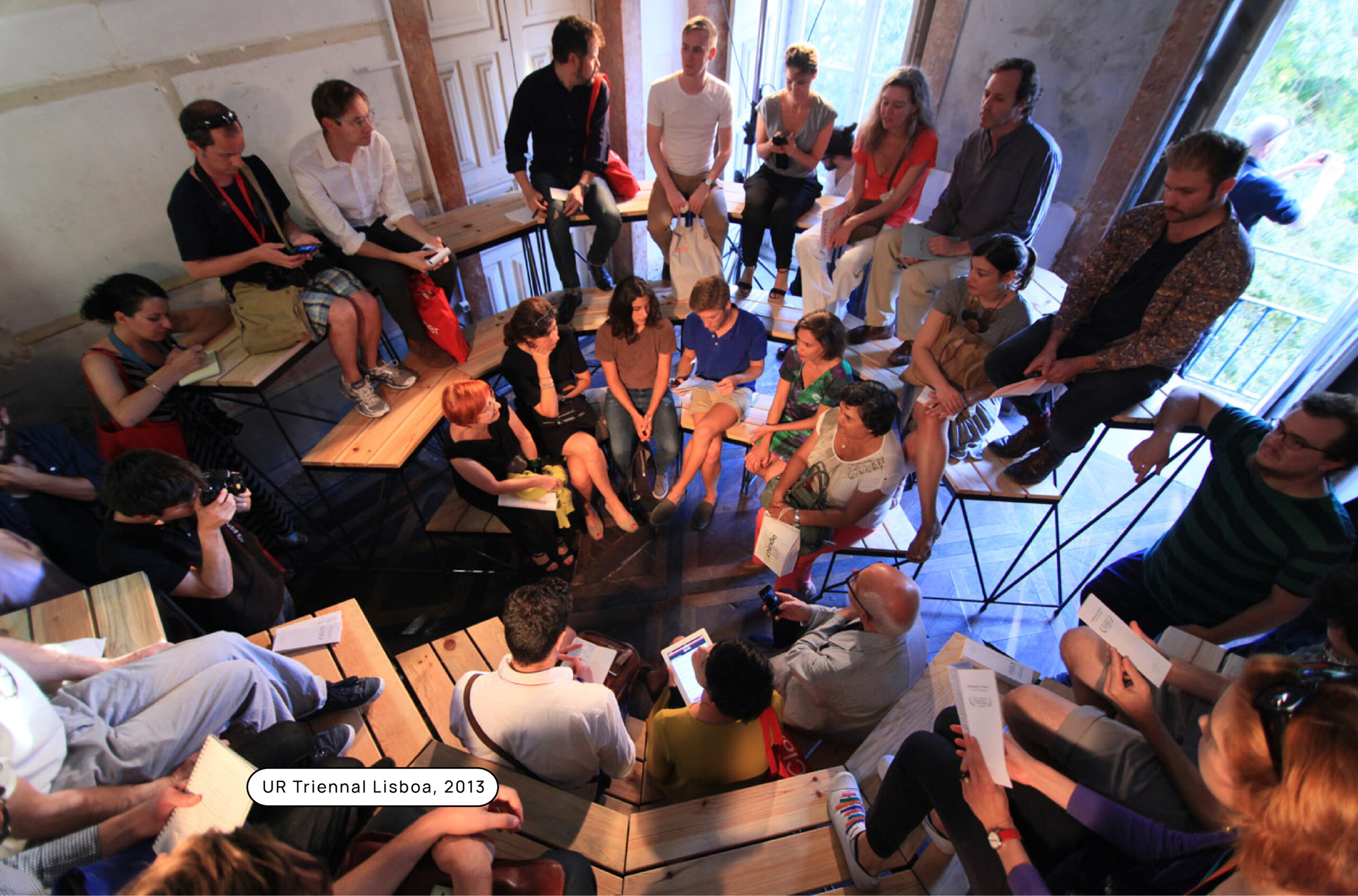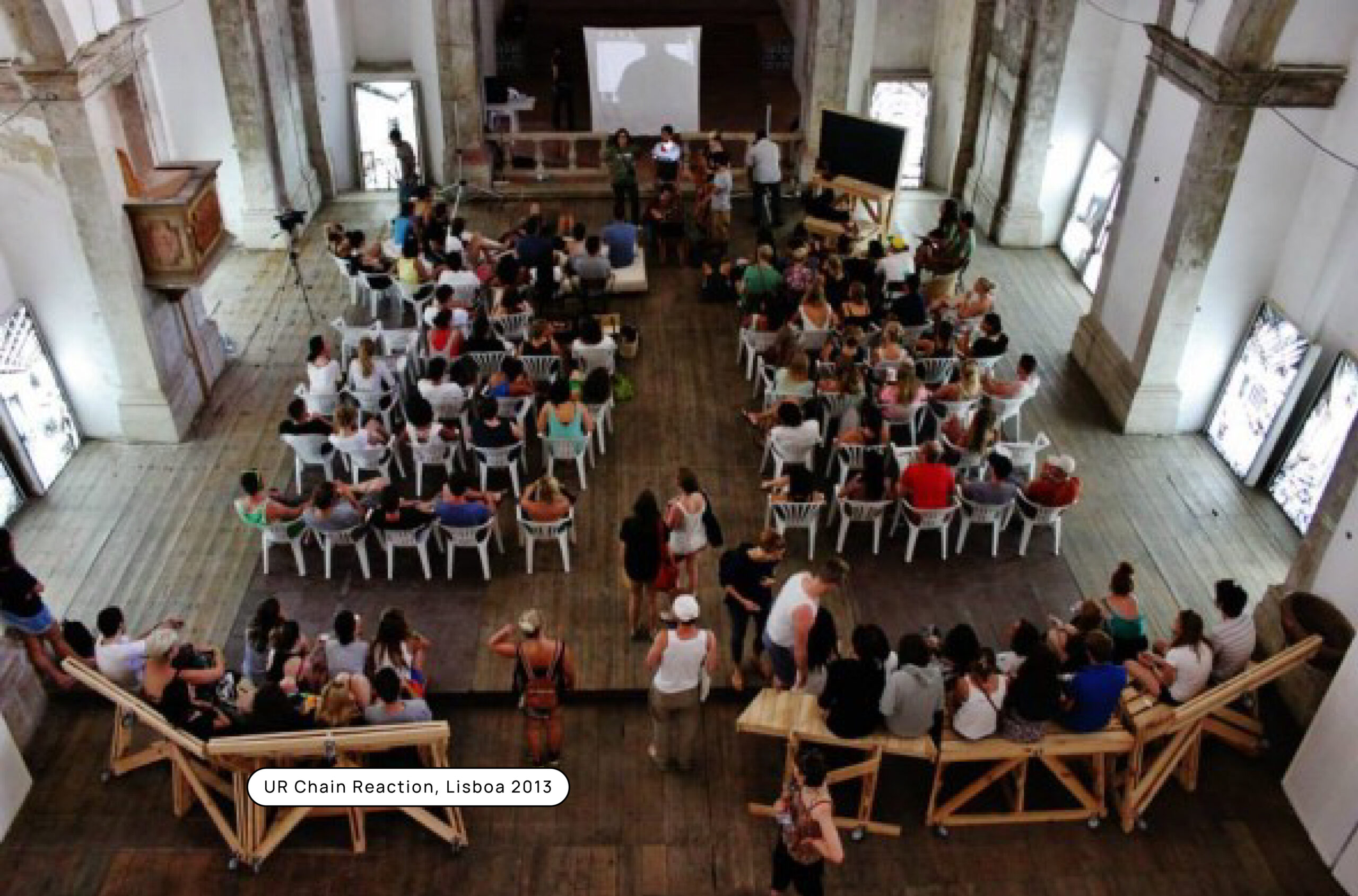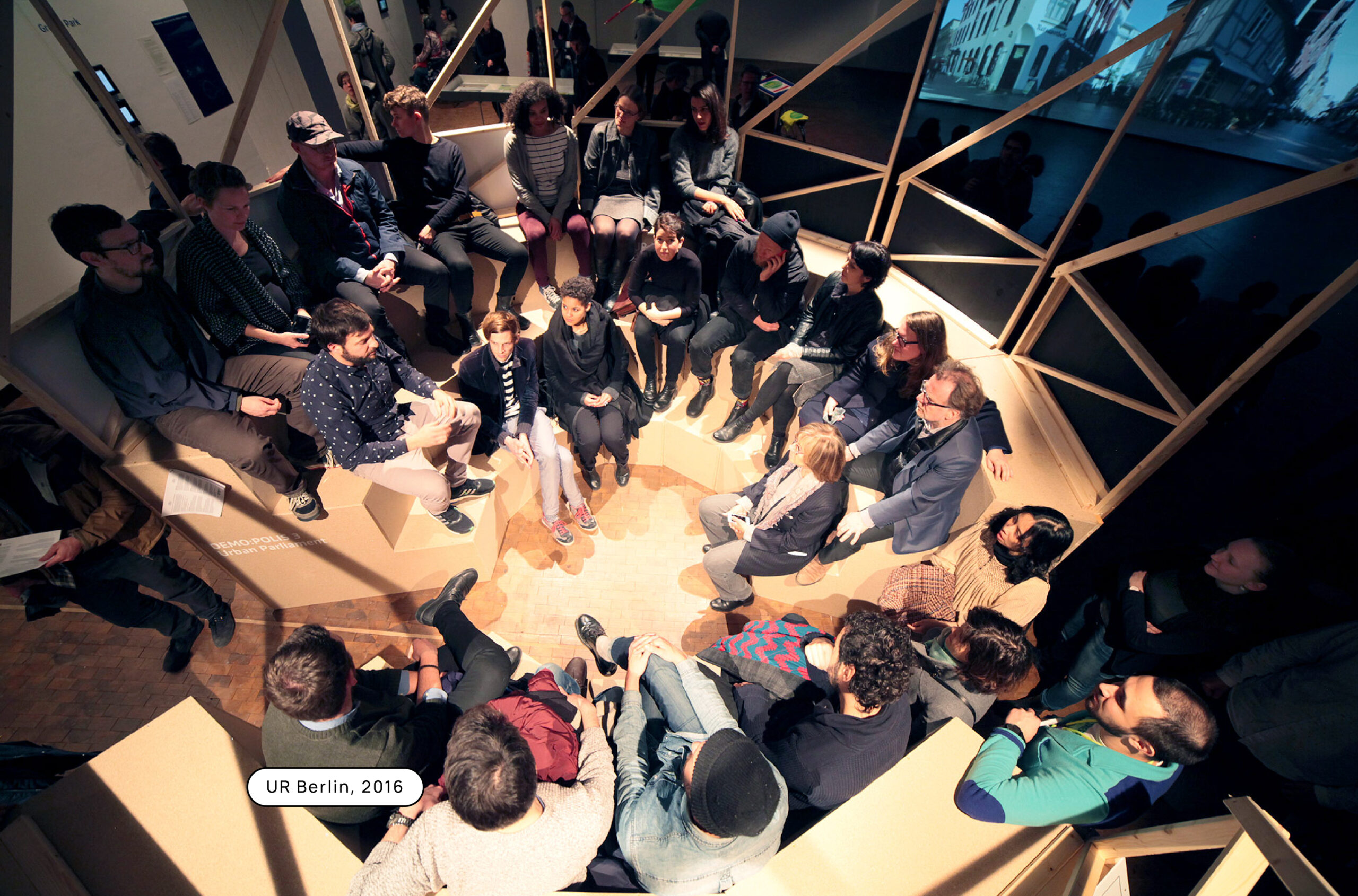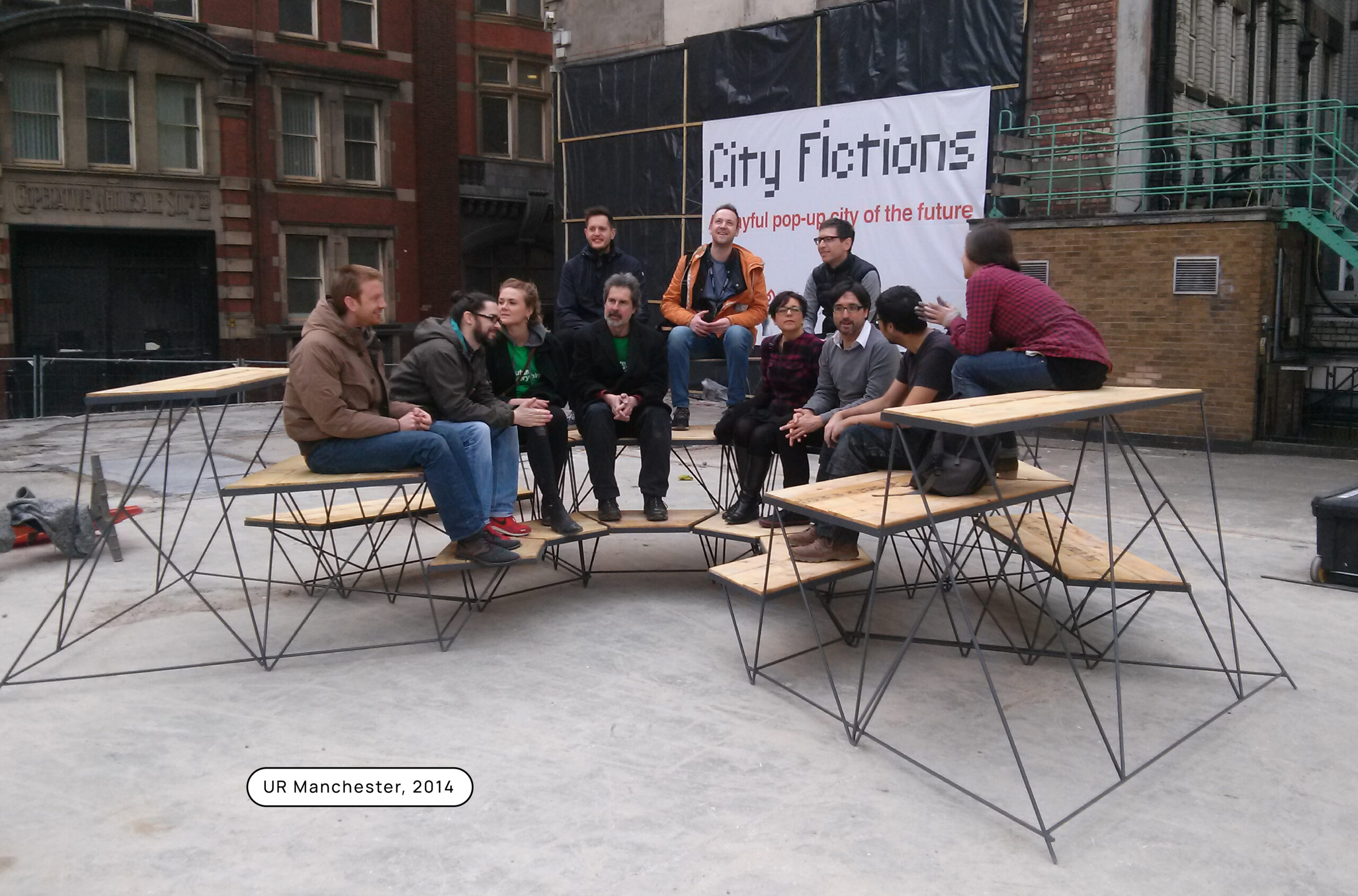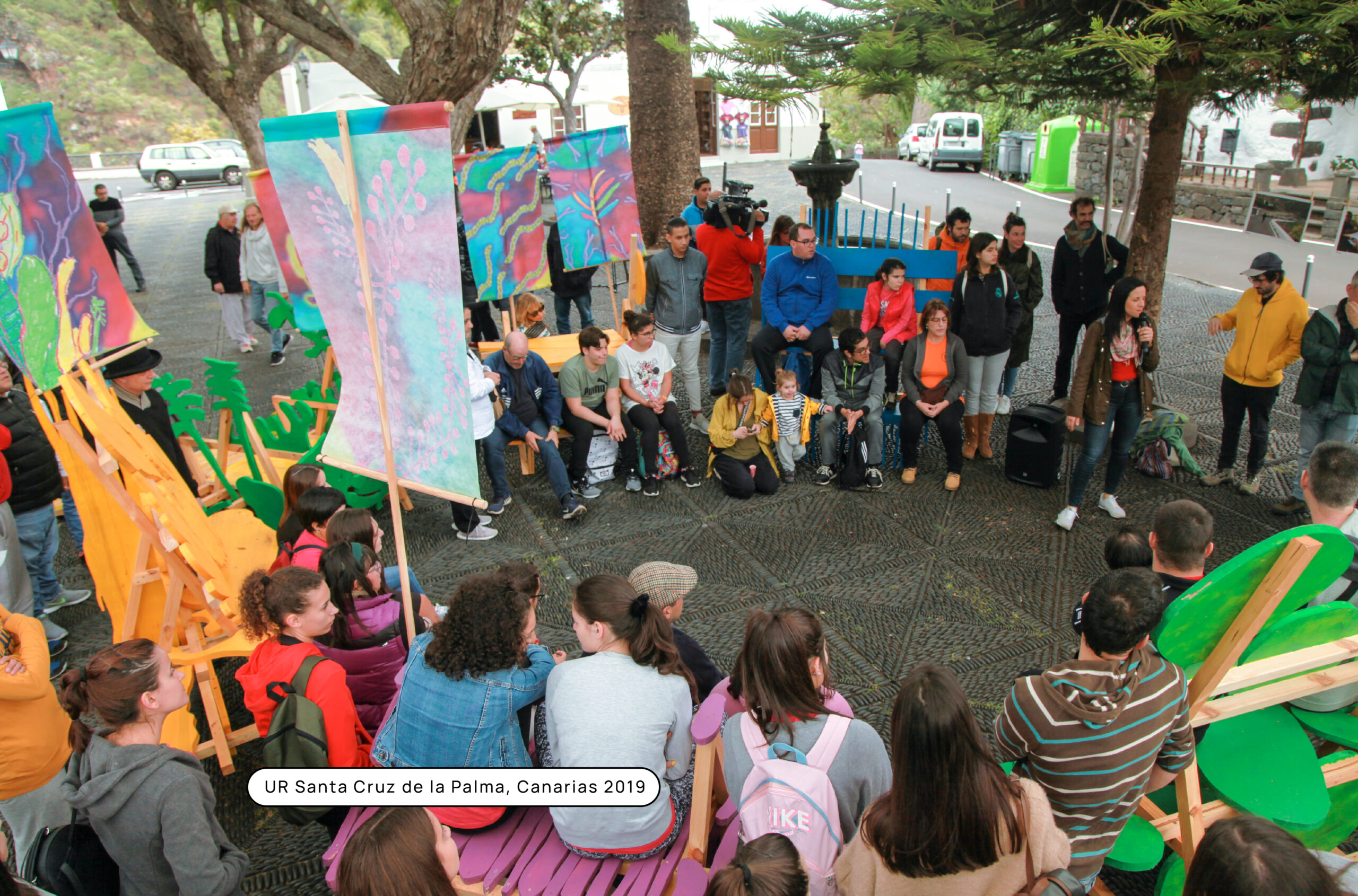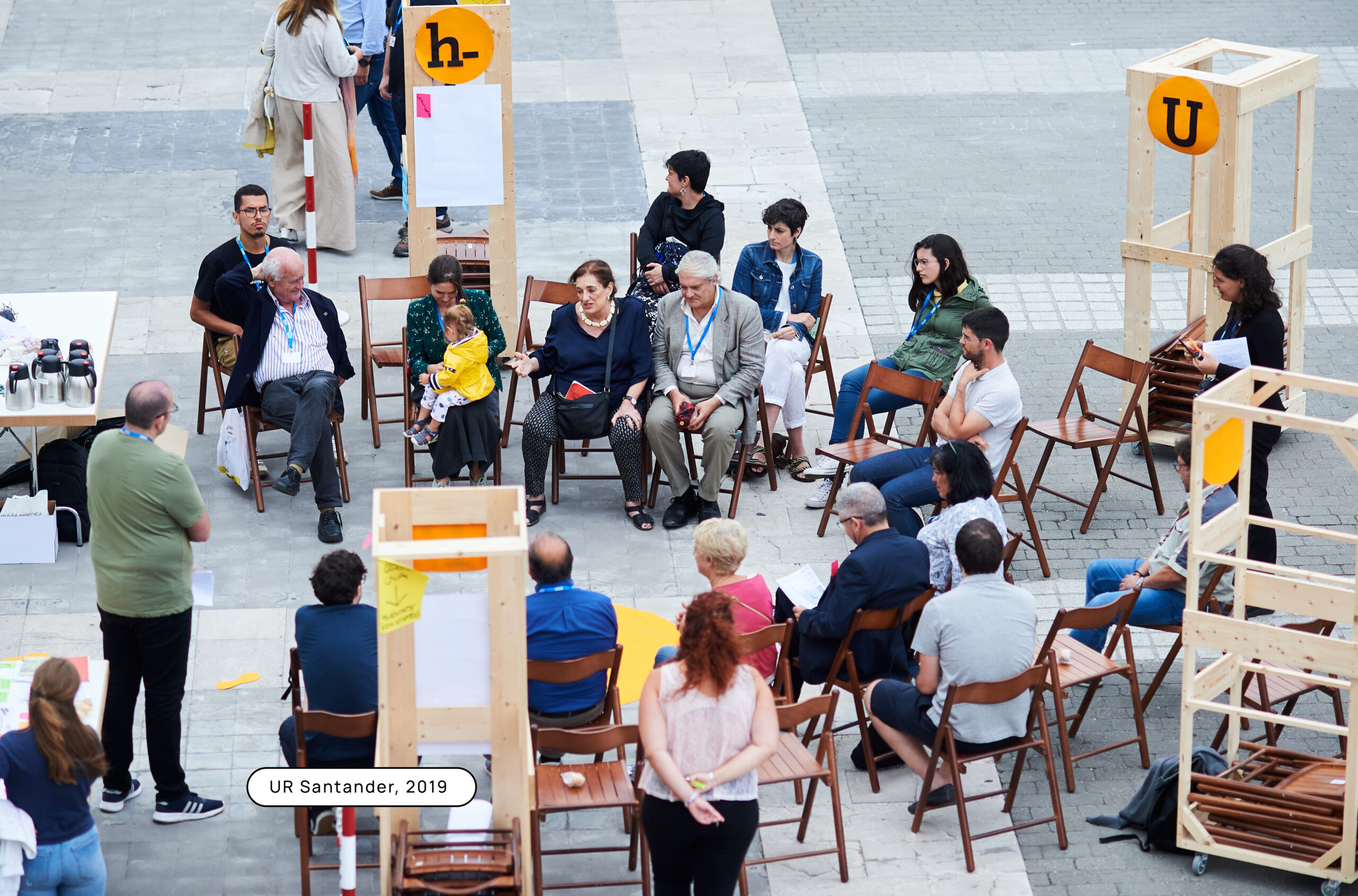
The Universal Declaration of Urban Rights is a cultural and political platform for local change. Urban Rights is an open research project initiated by Zuloark in 2011, seeking to respond to contemporary challenges by articulating a new urban agenda based on local experiences and ideas generated democratically and in a distributed way. project is intended to listen to and collect the imaginaries, expectations, and needs for transformation that neighbors around the world identify as necessary for their neighborhoods and cities. It is an infinite manifesto consisting of individual points of view, regardless of level of experience or capacity for agency, where all “urban beings” are invited to participate.
Urban Rights aims to rectify prior misconceptions about how architecture and urbanism can empower locals, institutions, organizations, and experts – or what we call “urban beings” – to make political decisions that shape contemporary cities. The “Athens Charter,” a document on urban planning created by a small group of experts in 1933, has had a significant impact on the lives of billions of citizens worldwide for nearly a century.
In contrast to the Athens Chart, Urban Rights aspires to expand the scope of public debate on urban matters within each territory. Invoking the “Right to the City”, Urban Rights aims to create a “Universal Declaration,” an open archive of diverse perspectives from all “urban beings,” considering all inhabitants of a certain territory as equals.
The Parliaments
The UR_Parliaments aim to create a new urban agenda based on democratically generated experiences at the local level. Using local parliaments as a tool for gathering, the Universal Declaration of Urban Rights (UR) intends to discuss controversies and create an infrastructure for the collective construction of an ever-evolving Declaration of Urban Rights. This declaration is formulated through qualitative urbanism, allowing research to be based not only on numbers, statistics, and graphs, but also on opinions, comments, and experiences.
The Parliaments are designed as furniture and small architectures for the meeting, and the rules that govern them cater to the diversity of views and conditions that are convened during the parliamentary sessions. These sessions are structured meetings to inquire about specific topics and serve to exchange learning and reach collective agreements. Since 2011, Urban Rights has constructed 8 parliaments and held over 20 parliamentary sessions on how to involve new actors in decision-making.
Interviews and Archive
Since the first edition of Urban Rights in 2011, over 200 people have been asked to answer these three simple questions regarding their urban environments:
What would you preserve?
What would you include?
What would you eliminate?
Considering all citizens as city experts, the Universal Declaration of Urban Rights is designed as a methodology that collects and analyzes variable opinions over urgent matters of the contemporary cities. The interviews are conducted by a simple mobile escenography, a wooden laser cut fabricated chair. The chair is a stand from where to speak, a spot that’s not a spotlight, from where to address the critical questions on one’s territory: What to preserve, what to include and what to eliminate.
This information is gathered, organized and presented to an online open data base, forming the UR_Archive, which is practically the digital imprint of the results of the UR_Interviews. All information combines an editable and amplifiable archive that reflects a distributed network of diverse opinions.
Join the UR_Network
As an open platform, a wide and diverse network of “urban rights observers”, actors involved in the drafting of the Declaration with different degrees of involvement, has been established. This UR_Net of collaborators is made up of UR_Ambassadors, UR_Observers and UR_Supporters. UR_Ambassadors are the local mediators who place the Declaration in a given context. They can be collectives, neighbourhood or professional organisations and institutions and administrations aligned with citizen participation and innovation. UR_Observers are those who record their own declaration or promote observation walks. UR_Supporters are those who maintain the project and the main partners, such as Montera34 and funders of various kinds, from small neighbourhood associations and countercultural events (UrbanBat, EME3, Solar Corona-Valencia) to cultural institutions such as ADK Akademie der Künste (Berlin), La Casa Encendida (Madrid), ISELP (Institut Supérieur pour l’Etude du Langage Plastique), Future Everything Festival, Trienal de Arquitectura de Lisboa, Goethe-Institut Madrid. You too can join in by scheduling observation walks in search of interviews, translating content into your local language, organising an edition as a regional mediator or even building a Parliament, among other collaborative practices.
You can find relevant information in the UR_KIT or contact at declaration@urbanrights.org.

